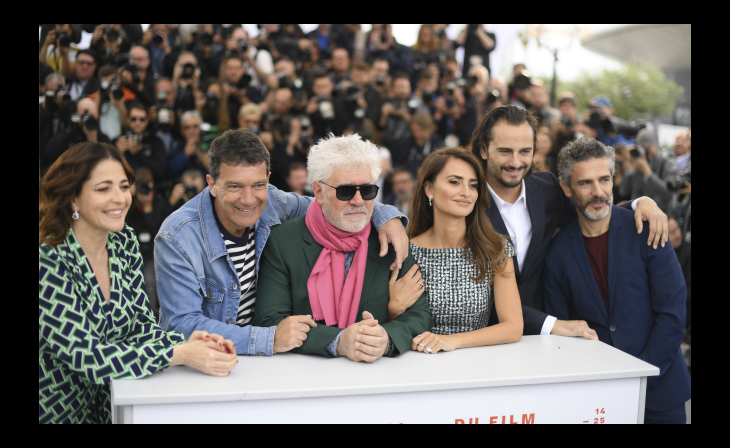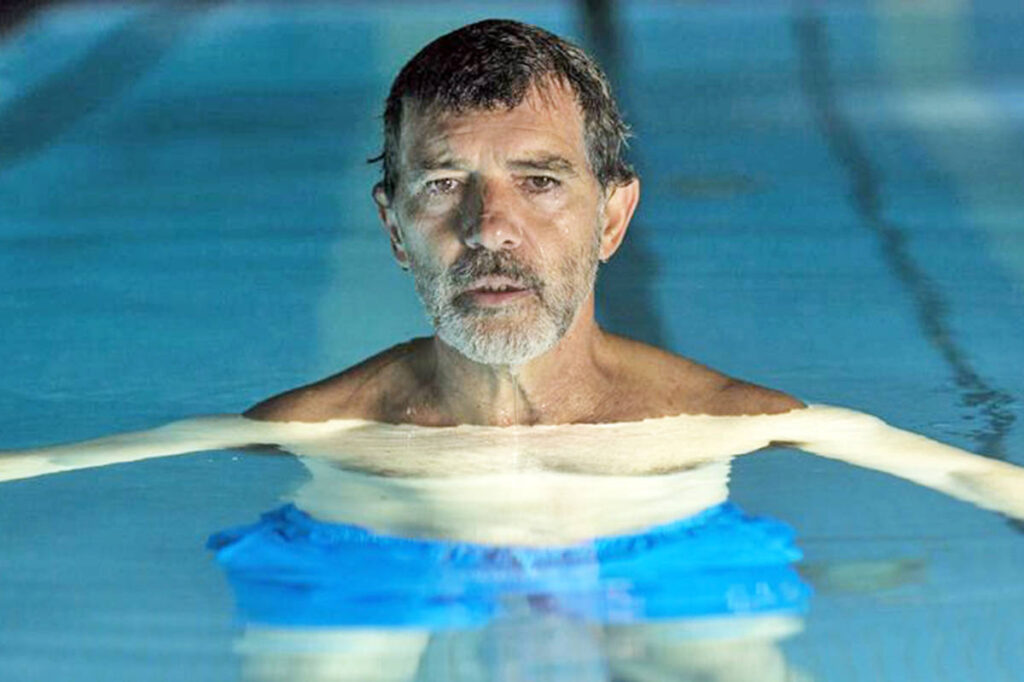Pedro Almodóvar’s deeply personal Pain and Glory is one of the finest films of 2019 as well as the last decade. This film is a vivid reflection of his life and strongly connected to his life events. The character of Salvador Mallo played by Antonio Banderas is the alter ego of Almodóvar. When the film progresses, the audience can clearly feel Almodóvar in Banderas. It is as if Banderas forgets his self-identity and becomes the director. Even though some scenes are constructed and not directly taken from the director’s life, the film is largely autobiographical. Childhood memories, his first crush, adult love, separation, falling out with his actor, his physical inability, mental blockage, mother’s affection, regret, and a very deep passion for cinema cannot be more personal.
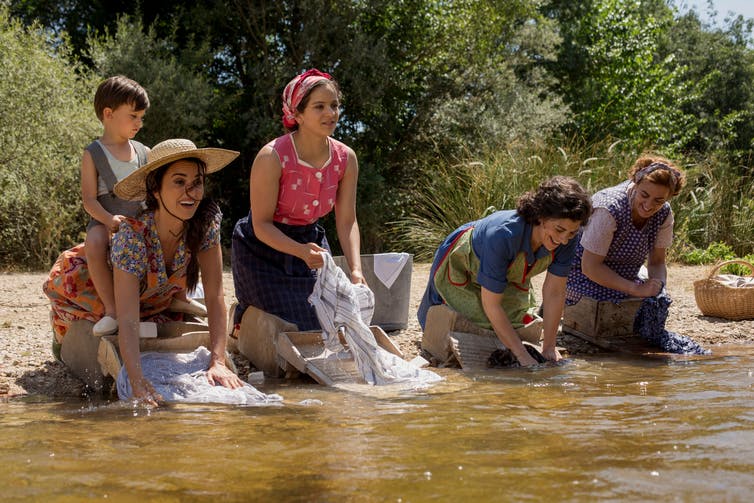
Salvador (Antonio Banderas) is in the middle of both creative and physical crisis. He has been suffering from various physical ailments and his throat gets choked very often due to a tumor. He has also been suffering from director’s block much like Guido played by Marcello Mastroianni in legendary filmmaker Federico Fellini’s 8 ½. The film starts with Salvador in a swimming pool reminiscing the golden memories of his childhood. His pensive mind crosses the urban Madrid and reaches out to the rural areas of Paterna in the Valencia region of South-Eastern Spain. His mother takes him to the river nearby where women gather to wash their clothes and bed-sheets and spread those over plants for sun drying. During washing, the village women start singing a melodious folk song. Childhood memories are always the sweetest. Those are painted with memories and nostalgia.
Salvador is invited by a local cinema club to present his film Sabor, which he directed 32 years back and has been restored. His old friend Zulema (Cecilia Roth) suggests him to ring up Alberto Crespo (Asier Etxeandia), the lead actor of Sabor and whom Salvador has not spoken with for the last 32 years, and present the film together. The fall out happened because of Alberto’s heroin use and its influence on the portrayal of the character. Salvador pays Alberto a visit and the latter introduces him to Heroin.
The most important aspect of this film is depicting Salvador’s life through flashbacks. While taking heroin, he walks down the memory lane. The memories of his childhood days get painted on the canvas of his thoughts and imaginations. His parents arrive at Paterna and they start residing in a cave-like whitewashed house. There is no roof in one portion of the house and rainwater droplets directly fall on the house. His mother Jacinta (Penélope Cruz) makes that house a whole new world with a smiling face. Adolescent Salvador teaches a local laborer named Eduardo how to read and write.
Alberto stages an autobiographical story written by Salvador, wherein Federico (Leonardo Sbaraglia), Salvador’s first adult love interest, has been mentioned. Federico currently resides in Buenos Aires and has come to Madrid for a short business trip. He attends Alberto’s show in Madrid by chance and realizes that this is the story of Salvador and him. Teary-eyed, he meets Alberto backstage and collects Salvador’s contact number. They meet the next day at Salvador’s residence and reminisce about the old times together. The former couple flirt, kiss, and finally depart.
In another flashback, Salvador meets his mother (Julieta Serrano) at a hospital almost during her last stage. His mother complains that he has not been a good son. He tells her that it was not possible to take her to Madrid as she probably could not adjust there. He promises to take her to the village so that she can spend her remaining days there. Salvador could not fulfill his promise as his mother had passed away before that. This has become one of the biggest regrets of his life.
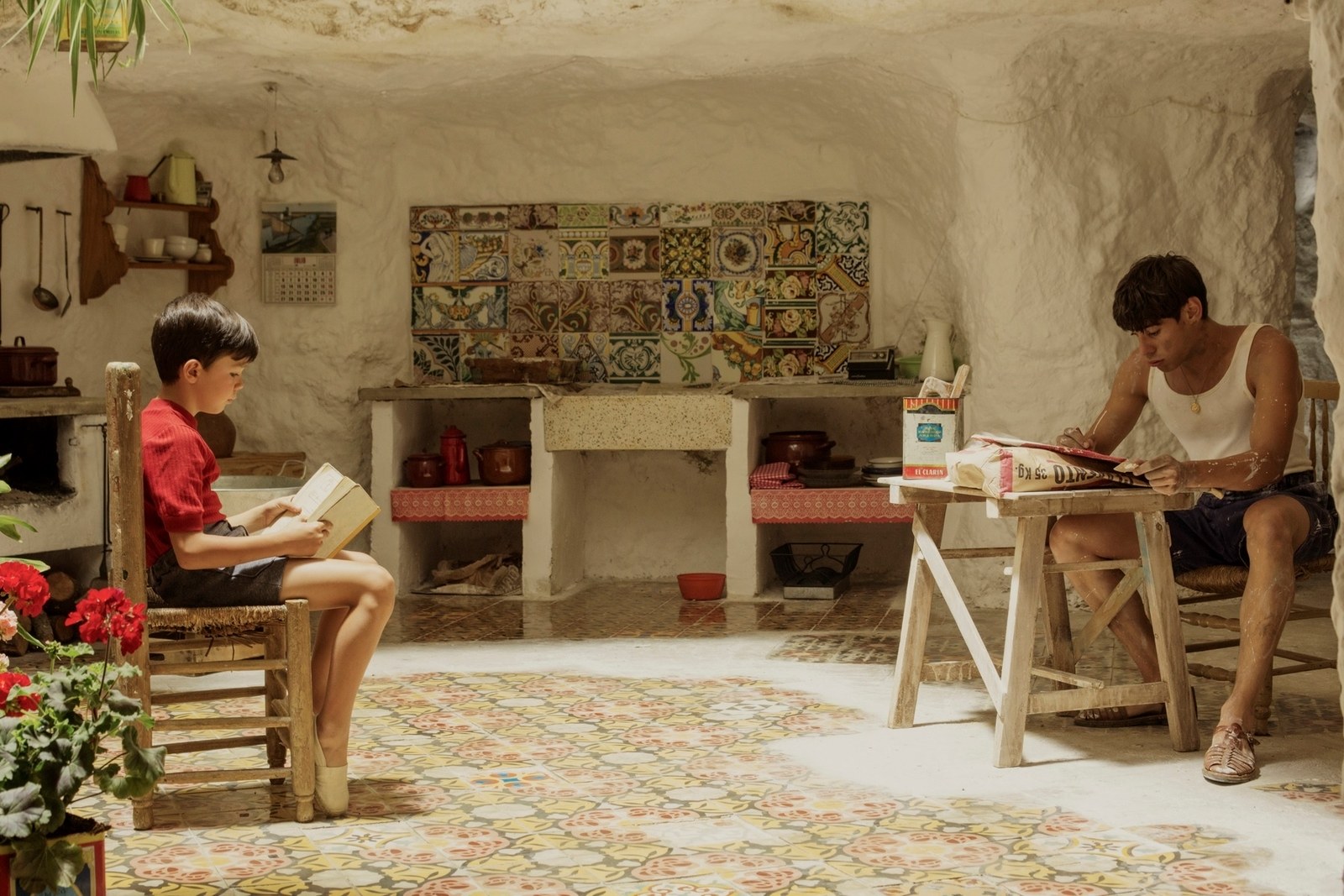
Salvador is invited to an art exhibition where he recognizes him in a picture on display. His memory flashes back once again and he remembers the exact timing and sequences of drawing this picture. While tiling the kitchen, Eduardo stops by Salvador and sketches him sitting in the sun. After finishing the picture, Eduardo starts taking bath and Salvador faints while looking at him. Later, Eduardo writes a letter addressing Salvador and mentioning his gratefulness to Salvador for teaching him how to read and write on the back of the picture and posts it to the latter’s address. Julieta never discloses Salvador about this picture.
Salvador gets the throat tumor operated. In the final scene, adolescent Salvador waits at the railway station with his mother and watches the festival fireworks of the nearby village. His mesmerized face is caught on camera, which tracks back a little later. The audience can see the boom operator and the sound engineer. The scene is being shot on a movie set and the director is none other than Salvador himself, who has finally overcome his physical and mental obstacles and started making a movie on his own life.
Pain and Glory highlights multiple dimensions of human life. The incidents surrounding human life are mirrored through the artworks. Pedro Almodóvar has made a film which is a reflection of his own life events. No praise is enough for this amazing masterpiece, which is born out of the director’s own soul. An artwork gets its life from the soul of its creator irrespective of its forms. That’s the reason the film becomes so lively and pure. It’s a brilliant and honest work of the director.
The color of the film is so vibrant that it becomes an important part of the film. Even the color used in the credit roll has a beautiful pink and white combination. The usage of color adds an extra layer to the amazing cinematography by veteran cinematographer José Luis Alcaine. Alberto Iglesias’ music in the film is praiseworthy. The folk song in the river scene is soothing and perfect for the theme of the film.
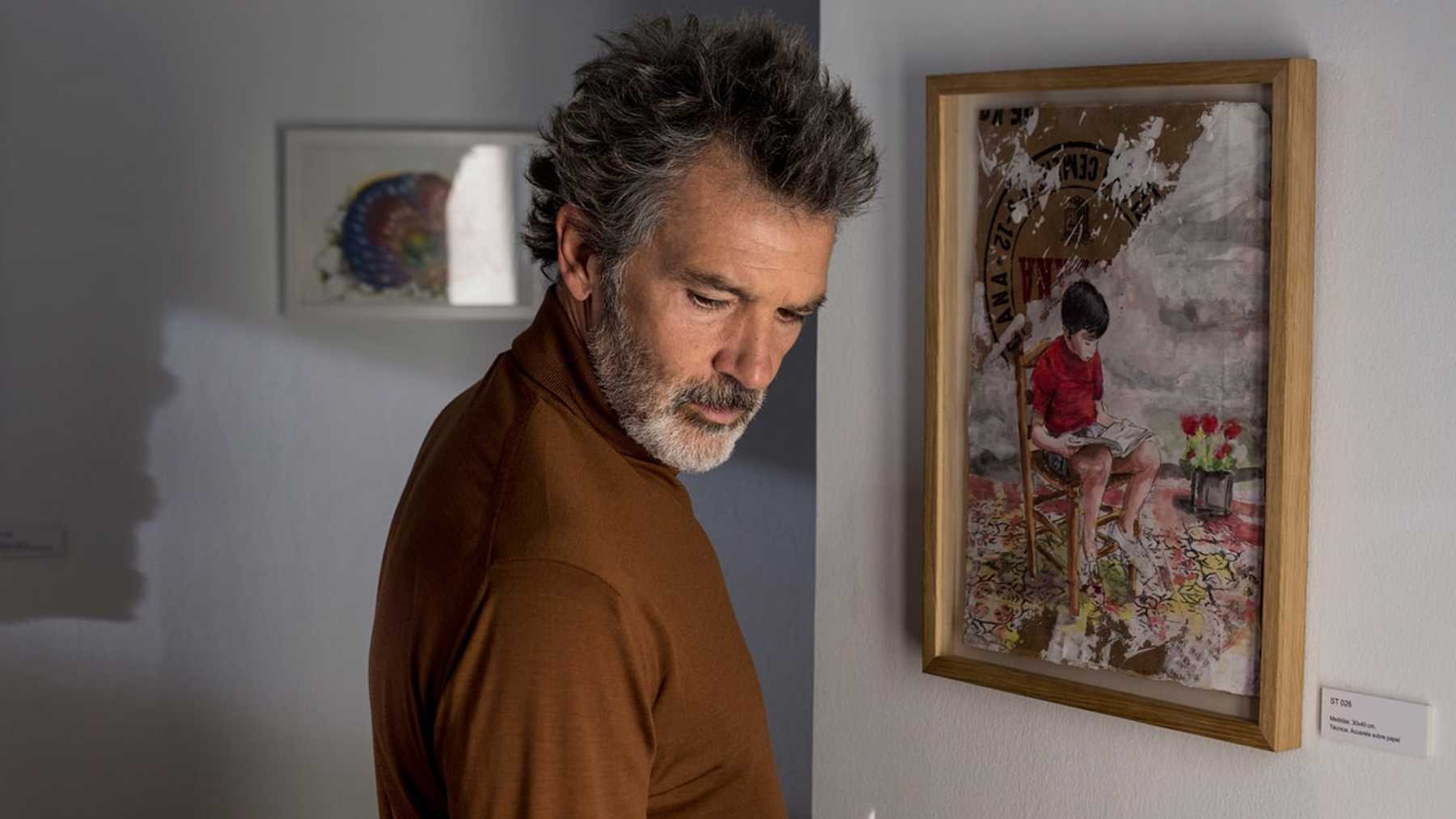
Antonio Banderas deserves all the praises for his portrayal of Almodóvar as Salvador Mallo. Banderas has set up a new standard and reached a new height for the actors playing a character role. His effort and passion get reflected in each frame of the film. He has opened himself up completely to embrace the character of Salvador Mallo. His expressions establish the scenes multiple times without uttering too many words. Penélope Cruz as Jacinta, Asier Etxeandia as Alberto Crespo, and Leonardo Sbaraglia as Federico are dynamic and apt for the assigned roles. Julieta Serrano as elderly Jacinta is sensitive enough.
Pain and Glory was nominated for the Palme d’Or at the 2019 Cannes Film Festival, where Antonio Banderas won the Best Actor Award and Alberto Iglesias won the Best Soundtrack Award, and Best International Feature Film at the 92nd Academy Awards, where Antonio Banderas was nominated for the Best Actor Award. Pain and Glory will remain as one of the most beautiful films ever produced.
